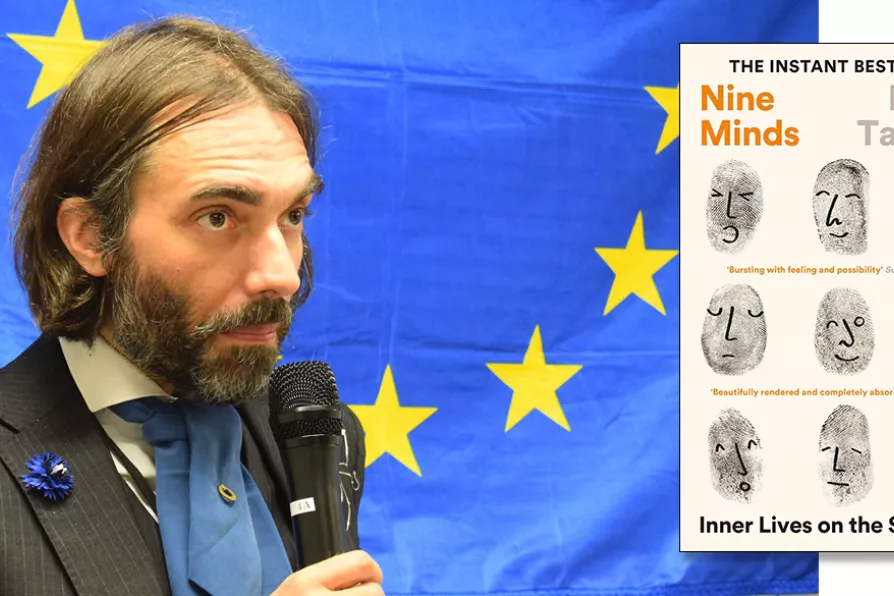JOHN GREEN, MARIA DUARTE and ANGUS REID review Fukushima: A Nuclear Nightmare, Man on the Run, If I Had Legs I’d Kick You, and Cold Storage

 Cedric Villani, the French mathematician, speaking at a public meeting of Macron’s centre-right party En Marche in Tokyo, 2018
[Syced/CC]
Cedric Villani, the French mathematician, speaking at a public meeting of Macron’s centre-right party En Marche in Tokyo, 2018
[Syced/CC]
Nine Minds – Inner Lives on The Spectrum
Daniel Tammet, Wellcome collection, £20
IS a mainstream mindset ever caught up in patterns of thought that are obsessive? Lines can be crossed: wires too. Eccentric or blinkered ways that are relatable in adulthood may signify as ominous mania in early life.
Nine Minds – Inner Lives on The Spectrum gets under the skin, by illustrating how intense interests or mental blanks that occur recognisably amid a happy majority can curiously ramp up or miss-time to designate an autistic community, among whom general rubric is written in upper-case bold.
Nine Minds keys into difference, from the perspective of interviewees who find themselves on the autistic spectrum. Its writing is not, essentially, a worded version of the workings of the autistic brain. Instead, author Daniel Tammet finds workable language to conjure portraits of his protagonists at their various stages of life.

JOSEPHINE BARBARO welcomes a diverse anthology of experiences by autistic women that amounts to a resounding chorus, demanding to be heard

MATTHEW HAWKINS applauds a psychotherapist’s dissection of William Blake










